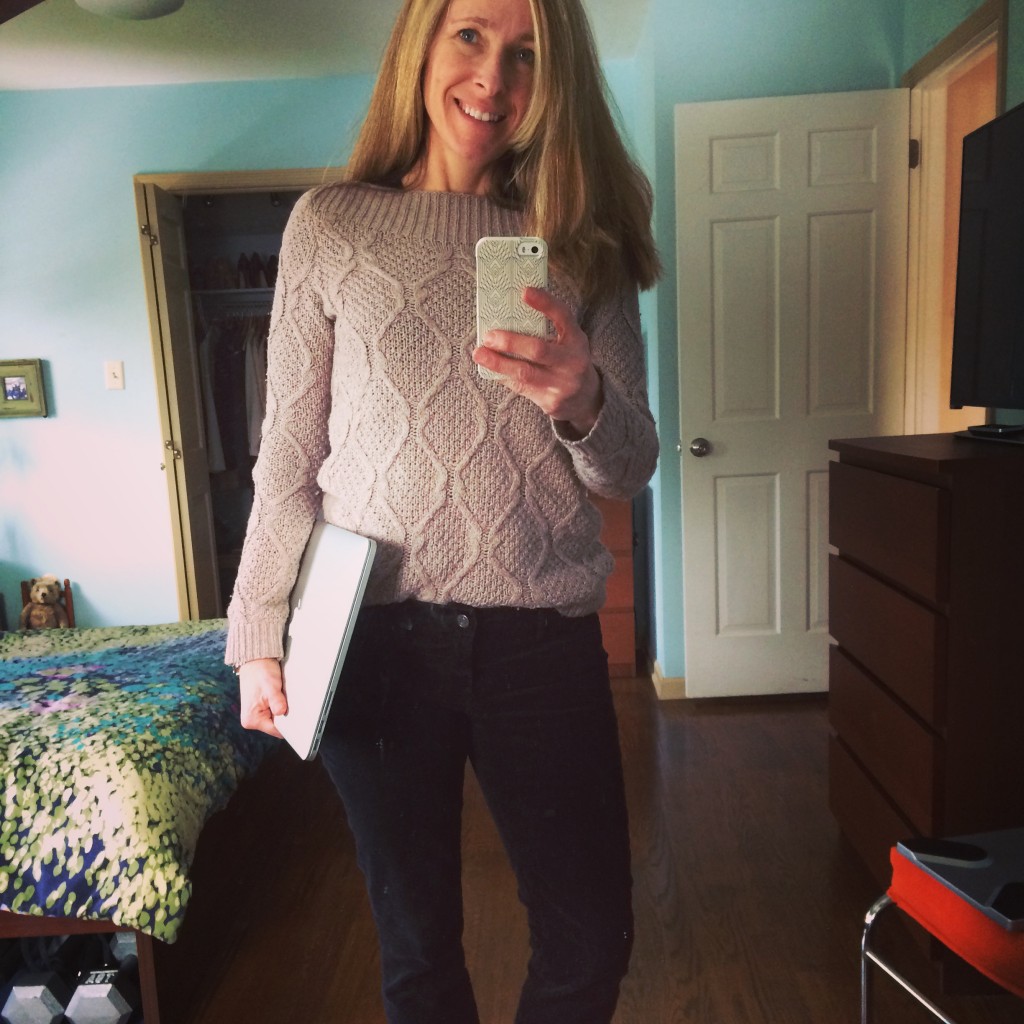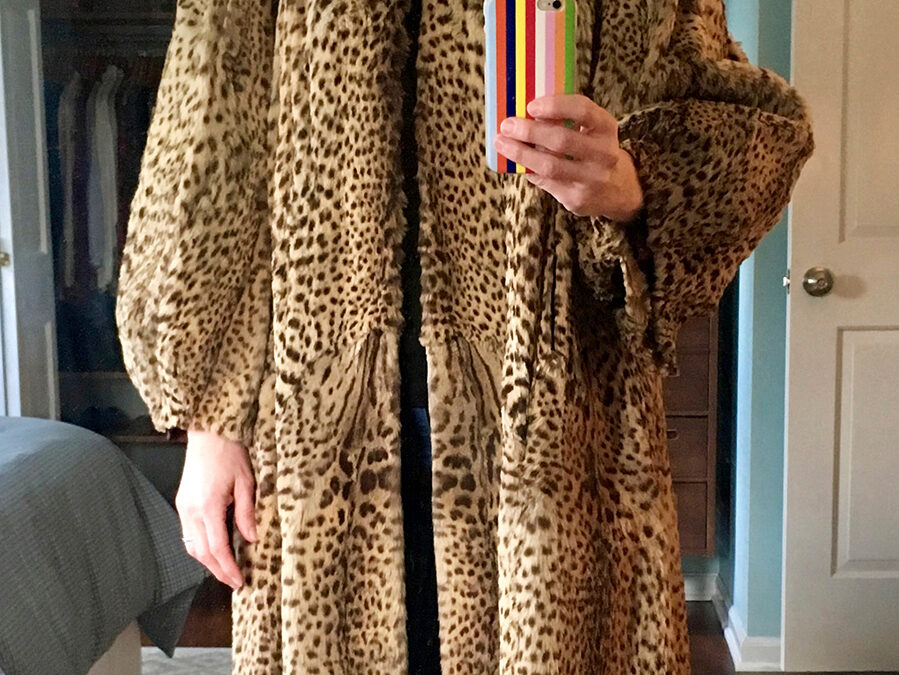When you were little, what did you want to be?
My first memory of a career choice was an Architect. I’m not really sure I knew what an Architect did, but I liked the sound of it. When I told my dad, he said, “Well, you have to be really good at math to be an Architect.” I took it that he didn’t think I had a chance.
I think I also thought of being a Ballerina. That was actually more realistic, believe it or not, since I studied Ballet seriously for a number of years at a school that had a Company, and I was pretty good.
As a teenager, I loved fashion—especially Yohji Yamamoto and Rei Kawakubo, modern furniture & industrial design, and modern art. I thought the best thing I could dream of being was the next Andy Warhol. I think my plan was to move to New York and paint.
I guess I knew from a young age that I wanted to be an artist. Or a chef. Or a hair dresser.
What was your first job?
My first job was delivering newspapers, for the Washington Star, I think. A route I took over for my brother. I was 10. I lost money at that job because I had to pay for the papers myself and then collect money from the customers. I went on to have better jobs, like babysitting, mowing lawns and then as a teen, for Subway, Baskin Robbins, Commander Salamander (punk rock clothing store in DC), Kemp Mill Records and tending bar at the Lowes L’Enfant Plaza Hotel pool.
Did you go to college? What was your major?
When I realized that you could go to college and study art, it was a revelation. While all my prep school classmates at Edmund Burke seemed to be preparing for Harvard and Yale and Princeton and Brown, I was freaking out. How could I escape 4 more years of school? Couldn’t I, shouldn’t I just travel around Europe for a year or two? My parents were very insistent I apply to college. I visited Rhode Island School of Design (RISD), Massachusetts College of Art, School of the Museum of Fine Arts and Maryland Institute College of Art (MICA).
My college counselor insisted I apply to some liberal arts colleges, that I was “limiting myself by only looking at art schools”. My high school art teacher refused to write me a recommendation. My portfolio needed help so I took extra classes at the Corcoran School of Art and a professor there wrote me a glowing letter of recommendation. My first choice was RISD, but I didn’t get in. Deeply discouraged, I reluctantly finished the application to MICA and I got in! With a scholarship! I chose Photography as a major which seemed silly since I grew up taking photos and developing and printing them in my dad’s darkroom. Didn’t everyone?
What is your career now?
I’m a Graphic Designer. I went from being a photo lab technician to a photo assistant to a freelance photographer to an advertising/marketing director. I’m not really sure how I managed to do that. A company called Photoflex that gave me my big break—took a chance on me. I learned a lot at that job. To say I got a lot of help from a lot of people would be an understatement. At first I felt like a fraud. I didn’t go to school for design. Over the years I’ve realized how much I learned at Art School. I didn’t just learn to do photography. I didn’t learn how to work in a specific field. I learned to be an Artist. I learned how to be creative, as much as that can be taught. And I can apply that to any creative endeavor.
What do you like about it?
I love design. I love imagery and typography and expressing an idea or a feeling—visually. I like the interaction with clients. I’m not always great at expressing myself verbally, but if I spend enough time in the creative process, moving the pieces around, really amazing things happen. The creative process can be really intimidating. There’s no straight line. No roadmap. No real rules. But that’s also what’s great about it.
Did you have a role model or a mentor?
So many. My dad Dan Woodhead who never treated me like a “girl”, my mom Star McHugh, my stepmom Carolyn Jean, my ballet teacher Luba Vzorov, my college professors Jack Wilgus, Paul Kohl, Ann Fessler and Howie Weiss among others, architectural photographer Anne Gunderson, master photographer Thomas Burke, the epic Rob Brough, graphic designer Joan Lintz, and of course Tim Feather.
Tom Burke always had the best advice for me, “It’s a poor craftsman who blames his tools”, “Ours is not to question why, but to do or die”, “Pressure makes diamonds“.
What would you do if you didn’t need money?
I guess I should have clarified this question. It sort of sounds like you live in a utopian society that doesn’t require money. Or in a monastery. Should it be, “…if you had a millions of dollars?” If I didn’t need to earn money, I would probably design houses and furniture. And probably buy really nice shoes and handbags.
What advice do you have for young women starting out in a career?
I try not to give advice. I can tell you what worked for me. In the beginning, fighting for what I wanted worked well. Passion and Persistence always pay off. Relationships are so much more important than you realize. The people you work with that drive you bonkers today may end up being your best ally tomorrow. It’s a lot of showing up and doing your best. Over and over. And asking for help. It’s okay to not know. It’s okay to try different things. For me, my career was not a straight line. When things were really hard, I thought it wasn’t the right career. I’m glad I stuck with it. It gets better. It get’s different. On a long enough timeline, things start to make sense. If that makes any sense.


